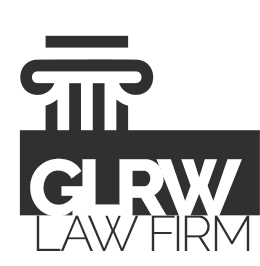
11 Apr What Legal Grounds Are Necessary to Evict a Squatter in NJ?
Navigating the intricacies of property law can be daunting, especially when dealing with squatters. In New Jersey, understanding the legal framework for evicting a squatter is crucial for property owners. This FAQ guide will walk you through the necessary legal grounds and steps to take.
Understanding the Definition of a Squatter
A squatter is someone who occupies a property without any legal right or permission from the owner. In New Jersey, it’s crucial to distinguish between a squatter and a tenant, as the legal remedies available differ significantly.
Squatters often move into vacant or neglected properties without a lease or the owner’s consent. In some cases, a person may have initially had permission to stay but remained after that permission was revoked—still making them a squatter under the law. Examples of squatters could be a girlfriend who lets a boyfriend move into an apartment with her and not pay rent, an owner of a house who lets a friend move into a house with no written or oral lease, a son of a tenant that refuses to lease an apartment after the original tenant has left.
The key distinction lies in the existence of a lease agreement: a tenant has either a written or verbal lease, while a squatter has no lease and no lawful claim to possession.
Recognizing who qualifies as a squatter is essential for identifying unauthorized occupants. Someone living on your property without consent typically does not have the legal protections afforded to tenants under New Jersey law.
Examples of Squatters under New Jersey Law:
🔑 Example 1: Unauthorized Move-In After a Sale
You buy a vacant single-family home at a sheriff’s sale. When you go to inspect the property, you find someone living there. They claim they’ve been staying there for “a few weeks” and insist they have nowhere else to go.
🛠️ Example 2: Contractor Who Never Left
You hired a contractor to renovate a property. After the work finished, they stayed behind, claiming they were “watching the place” or “waiting on final payment.” You never gave them permission to live there.
🛏️ Example 3: Guest Turned Resident
Your former tenant lets a friend or family member stay in the unit temporarily. After the tenant moves out, the guest refuses to leave. They now claim you can’t evict them without a court order.
🧾 Example 4: Fake Lease Scam
A stranger breaks into a vacant rental and then creates a forged lease to claim tenancy when you try to remove them. They might even post online pretending to be a “tenant” with rights.
🏚️ Example 5: Your Boyfriend Won’t Leave
You let your boyfriend move into your apartment, but he is never part of the actual lease and then refuses to leave after you breakup.
Establishing Ownership of the Property
Proof of property ownership is essential in eviction cases. Ensure you have all legal documents, such as the deed, to validate your ownership.Documenting your ownership rights with precise and updated legal papers is indispensable. This evidence can be your strongest tool when dealing with disputes in court.In the legal arena, your ability to demonstrate clear property ownership will often make or break your case against a squatter.
Demand Possession of the Property
To establish that an occupant is a squatter, the burden is on you to demonstrate that they have no legal right to be on the property. The most effective way to do this is by issuing a formal demand letter clearly stating that they must vacate the premises.
Initiating the Lega Process: It’s an Ejectment, NOT an Eviction
DO NOT FILE AN EVICTION! This is only appropriate if there’s a landlord-tenant relationship, like a lease or consistent rent payments. Filing an eviction against a squatter can delay the case or lead to dismissal for using the wrong forum.
Do file an Ejectment:
- File a Verified Complaint for Ejectment, usually under New Jersey Court Rule 4:67.
- Attach proof of ownership and evidence that the occupant has no right to possess the property.
- Show up with appropriate evidence at trial.
- Seek a temporary restraining order (TRO) to prevent further harm/damage if needed.
Enforcing the Possession Rights with Court Orders
If the court rules in your favor, it will issue an order requiring the squatter to vacate the property. If the squatter refuses to leave, the County Sheriff is authorized to enforce the order and remove them. This court-issued possession order gives you the legal right to reclaim your property, but enforcement must follow proper legal procedures to avoid any potential liability as the property owner. Remember: THERE IS NO SELF-HELP EVICTION IN NEW JERSEY. Only the Sheriff can physically enforce the order when the occupant to refuses to leave.
Consulting with a Legal Professional
Given the complexities of eviction laws, it’s wise to consult with a lawyer specializing in property disputes to ensure compliance with state regulations.
At Greenblatt, Lieberman, Richards, & Weishoff, we understand how frustrating it can be to discover that someone is unlawfully occupying your property. Squatters can disrupt your investment, delay your plans, and create unnecessary legal headaches. Our firm has extensive experience navigating New Jersey’s evolving squatter laws, which gives property owners stronger tools to take swift legal action. Whether you need help preparing a formal demand letter, working with law enforcement, or initiating an ejectment action in court, our attorneys are here to protect your rights and help you regain control of your property as quickly and lawfully as possible.




Sorry, the comment form is closed at this time.